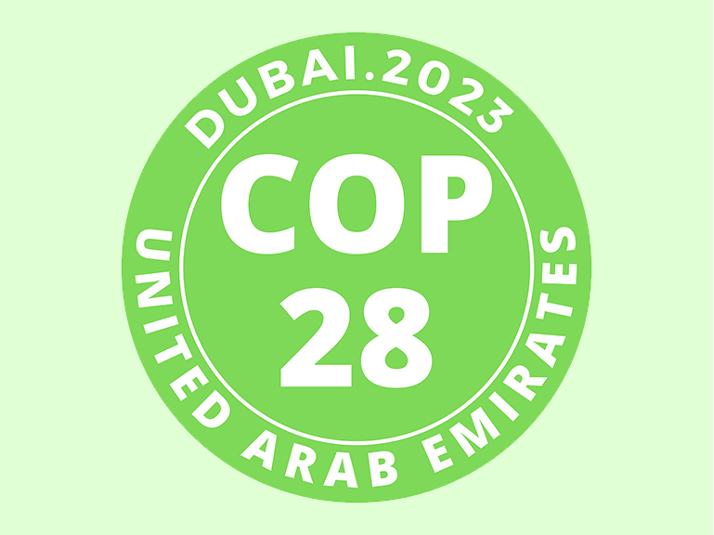AMECEA: Seven Key Issues at Stake Eastern Africa Bishops Raise Prior to COP 28

Sr. Jecinter Antoinette Okoth, FSSA
Ahead of the 28th Conference of the Parties of the United Nations Framework Convention on Climate Change (COP 28), prelates who belong to the Association of Member Episcopal Conferences in Eastern Africa (AMECEA) through their chairman have raised several issues that are at stake and need to be attended to during the ongoing conference in Dubai, United Arab Emirates (UAE), from 30 November to 12 December.
The chairman Bishop Charles Joseph Sampa Kasonde noted in a message shared with AMECEA Online Thursday, November 30, that the region is in solidarity with the entire world to address the urgent climate crisis it is currently facing highlighting that the participation of the nine-member countries of AMECEA and its two affiliate countries in COP 28 is not just “important but imperative.”
He added that the region which not only represents AMECEA but also the voiceless and the vulnerable who suffer the most from the harshness of climate change, seeks to be strategists “who consider the common good, echoing the Holy Father’s call for decisive action and also approaches the conference with a deep sense of responsibility and urgency.”
In his press briefing encapsulating the urgency and commitment of the AMECEA region in tackling the global climate crisis, the Local Ordinary of Solwezi Diocese in Zambia pointed out the global stock take response as one of the key issues at stake.
He said, “The UN’s (United Nations)”Global Stocktake” reveals our significant lag in meeting climate goals. I urge global leaders to respond with concrete commitments to accelerate our path toward limiting temperature rise to 1.5 degrees Celsius.”
According to the Prelate who was re-appointed as the AMECEA Chairman after the 20th plenary assembly of the bishops last year, sustainable food and land use is another area of concern that needs to be looked into during the ongoing conference since Climate change has impacted the health, livelihoods, and food security of people across Africa and the AMECEA region is no exception.
“Our agricultural systems, the backbone of many African economies, are under threat from erratic weather patterns, droughts, and floods. Ensuring food security must be a top priority at COP 28,” Bishop Kasonde underscored in the Friday message and continued, “Transforming our food systems and land use is crucial for both climate resilience and food security. We must commit to reducing agricultural emissions, reducing food waste, and protecting our forests.”
Talking about climate finance as another key issue, the native of Zambia said that adequate and fair climate financing is crucial. Developed nations, historically the largest polluters, must bear a significant share of the responsibility in supporting vulnerable countries in their transition to sustainable practices and in coping with the impacts of climate change.”
He further highlighted the transition from fossil fuels and adaptation and Loss and damage as other concerns which need to be prioritized saying, “We advocate for a rapid and equitable move away from fossil fuels towards sustainable energy,” a transition which he adds, “must be inclusive, ensuring no community is left behind.”
He continued, “I call on developed nations to support vulnerable countries in adapting to climate impacts. Operationalizing the loss and damage fund is critical for addressing irreversible damages caused by climate change.”
Other key issues at stake Bishop Kasonde said, include governance of technology and mineral extraction and inequality and environmental concerns.
According to the Chairman, the African continent is rich in minerals vital for technology and crucial in the fight against climate change. However, “the extraction of these resources often comes with environmental degradation and social injustices. We advocate for good governance in this sector, ensuring that the benefits are equitably shared and that environmental standards are upheld.”
He continued, “As deliberated by Catholic bishops in Malawi, Zambia, and Zimbabwe, inequality and environmental concerns are intertwined. The plight of the poor in our region is exacerbated by environmental degradation, and any solution must address this nexus of issues.”
With the listed concerns, the region’s responsibility the Bishop said “is not just to seek technological solutions, but to address the root causes and ensure a just transition to clean energy, a transition that must prioritize the common good and the future of our children over short-term interests and profit.”
Even though Pope Francis who has been passionate about attending COP 28 will not make it to the conference because of health reasons, Bishop Kasonde emphasizes that the Church leaders from AMECEA are in harmony with him (Pope) as he has ardently spoken against the denial and minimization of climate change and the region must recognize the undeniable human contribution to this global crisis.
He concluded that the “time for action is now” and the bishops from the Eastern Africa region “cannot afford to be remembered for inaction in the face of urgency,” hence their commitment to “playing a crucial role in this transformation since COP 28 presents an opportunity for a significant shift in how we address the climate crisis.”


